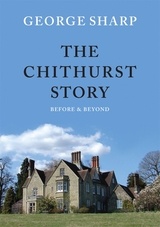
I am very pleased with George Sharp writing down the history of the English Sangha Trust, the Hampstead Vihara and the time that I spent there. I lived for two years in the Hampstead Vihara, then came Chithurst Monastery and, later, Amaravati.
George has an incredible memory for detail – I’m very impressed because he remembers all the legalities and minutiae that were involved in the selling of the Hampstead Vihara, the purchasing of Chithurst House, acquiring of Hammer Wood and later, in 1984, the purchasing and development of the Amaravati Monastery in Hertfordshire.
He is the important person in this endeavour because when I met him in 1976 I knew very little of the Hampstead Vihara but was encouraged by Tan Ajahn Paññavaddho to contact George Sharp if I ever needed a place to stay while I was in London. I was travelling back to Bangkok – I flew from New York to London and I had to wait three days for a connecting flight to Thailand. During that time George would come to see me every evening and tell me of his intentions.
He was the first layman I met who, on my travels through America and then during my brief sojourn in England, seemed to have some understanding of what was needed to establish a Theravadan Buddhist forest monastery.
In America, I travelled from California to New York and was quite open to possibilities of invitations to come and live, to come and establish this Thai Forest Tradition in the United States. Nothing really developed. Least of all was I expecting anything to happen during the three-day sojourn in London!
I was very impressed by George’s understanding of what was needed, that we weren’t going to be put in an impossible position of just becoming meditation teachers or writing newsletters. His whole emphasis was guided by the wisdom of Ajahn Maha Boowa and Ajahn Paññavaddho regarding the establishment of a forest monastery where the development of a bhikkhu could be made possible within the European setting. That impressed me so much that I encouraged George to come and visit Thailand and to meet Luang Por Chah because I thought that he should at least come and see what our life is like. Living in a city townhouse is different from living in the Thai Forest tradition. But if George came to Wat Pah Pong in Ubon, then he would see for himself: ‘Is this what you really want?’
Excerpt from the Introduction by Luang Por Sumedho
